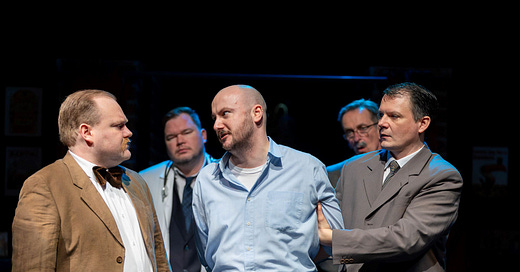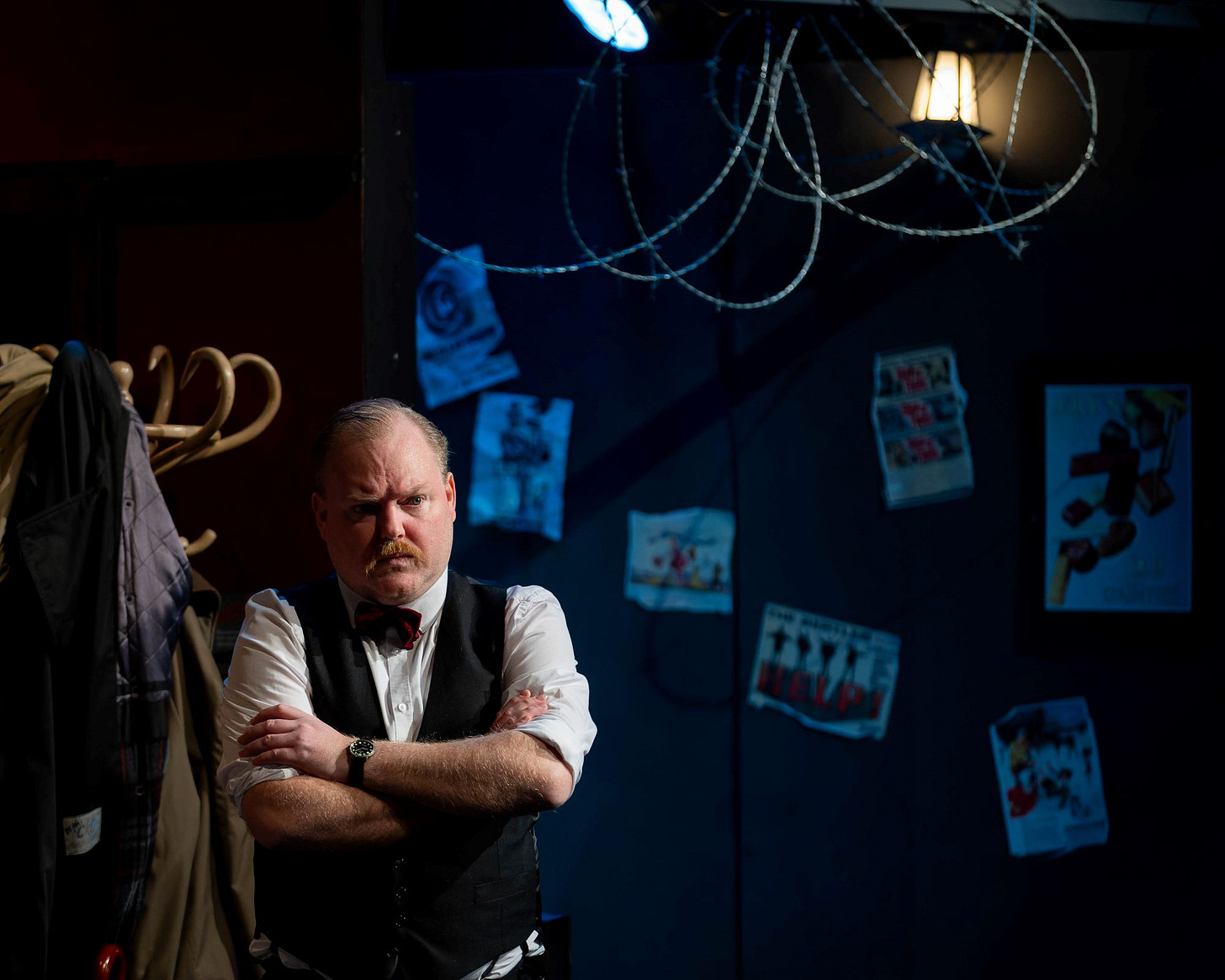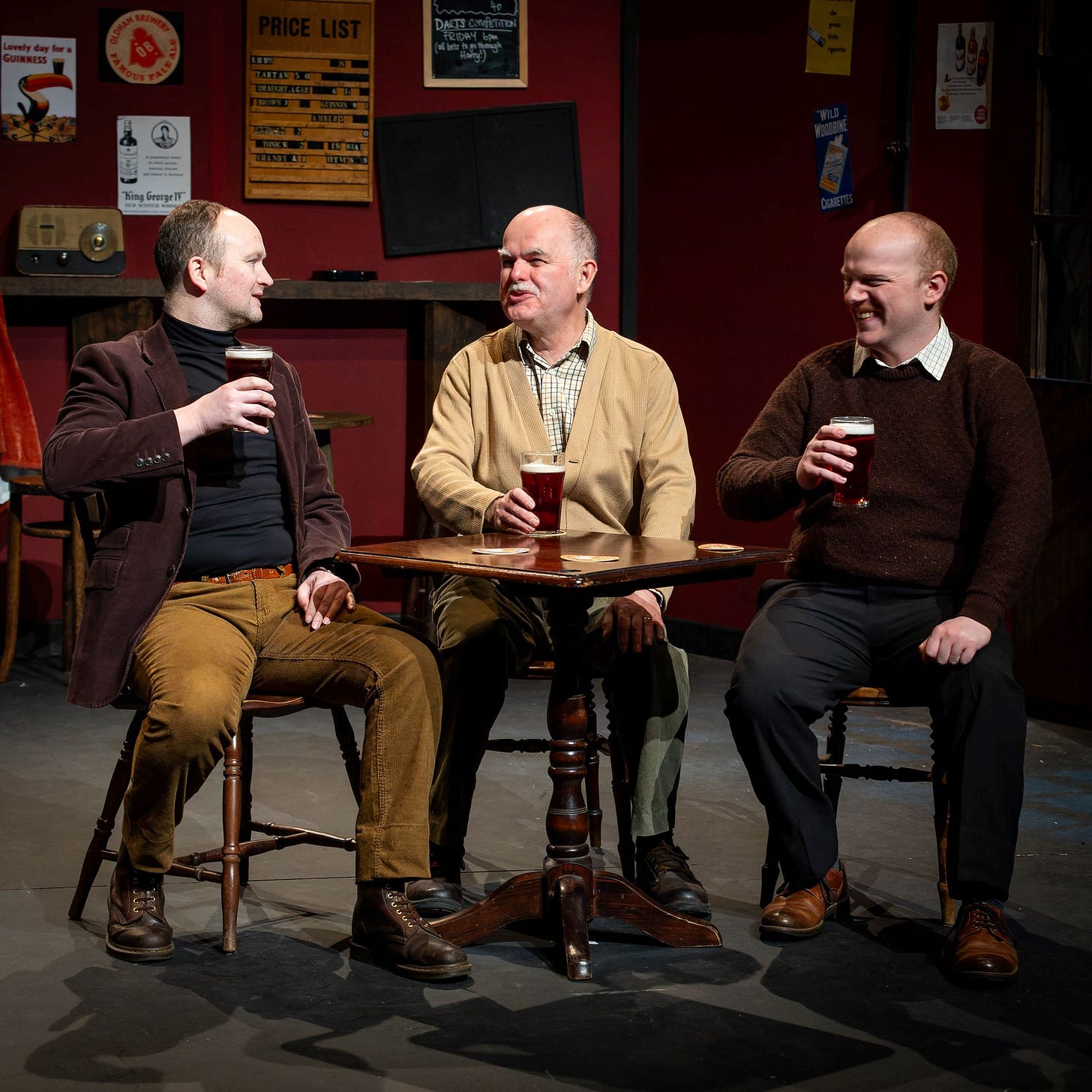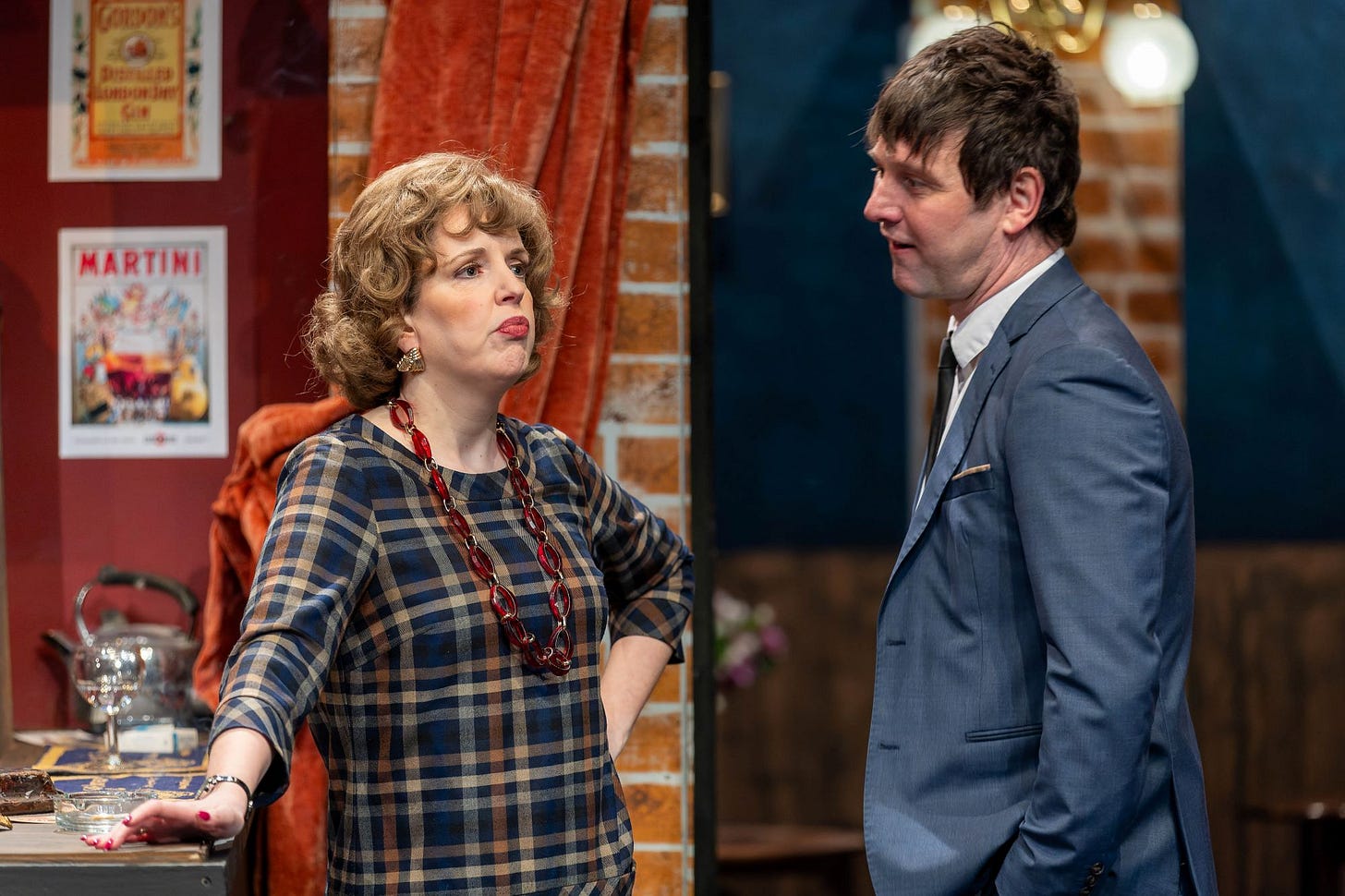Martin McDonagh’s slant on the ‘swinging’ Sixties might sound depressingly macabre – not at all what you want to see when the world’s going to hell in a handcart.
But while capital punishment can’t by any stretch of the imagination be called a fun subject, this is anything but a depressing night in the theatre.
I laughed out loud and I wasn’t the only one.
A cracking People’s Theatre production is perfectly paced, perfectly cast and easily matches the best things I’ve seen here, which isn’t to say it won’t cause a few sharp intakes of breath.
In evoking a decade often caricatured as miniskirts and pop music (I enjoyed the ’tween-scene snatches of The Animals and Hank Marvin on his galloping guitar), McDonagh doesn’t shy away from its uglier traits – widespread racial prejudice and, indeed, the lingering spectre of capital punishment.
The play opens in flashback with an insight into hangman Harry Wade and assistant Syd at their distasteful work, but most of the action takes place in a pub in Oldham in 1965 which Harry, released from his duties, is helping wife Alice to run.
In front of assorted regulars, a local journalist is intent on getting Harry to comment on the fact capital punishment has been abolished.
He is, after all, the second best hangman in the country after Albert Pierrepoint whose grim tally was much higher and included Nazi war criminals.
On the page, no doubt, McDonagh’s humour largely lies dormant. It’s often the way. Who laughs at Shakespeare as written?
But McDonagh, famous for his dark materials, also has the gift of writing in such a way that the comedy emerges in performance – and if it takes good actors to make that happen, then that’s what we’ve got here.
All clearly relish the task of bringing these rich characters to life, none more so than Ian Willis who, as Harry, marvellously conveys a man puffed up with his own self-importance.
This is a man who says “No comment” to Alex Cottrial’s headline-seeking reporter, Clegg, in a way that signals persistence is likely to be rewarded.
But the acting plaudits can be scattered around liberally.
Alice, alive to her husband’s flaws and quick to remind him that hereabouts she’s in charge, is invested with Alison Carr’s full armoury of sidelong looks and knowing shrugs.
The bar regulars are a delight, a shambolic posse who will preen anyone’s ego for a free pint. There’s Bill (Sean Burnside) with his alcohol-fuelled outbursts and the double act of selectively deaf Arthur (Andrew De’Ath) and translator mate Charlie (Callum Mawston).
And all are watched over by tight-lipped Inspector Fry (Jay Hindmarsh), a copper who while perhaps not exactly bent is adept at turning a blind eye while refreshing himself on duty.
Then into the mix come Glen Kingston’s Syd, turning up again in Harry’s world like a bad penny, and, best of all, the garrulous stranger, Mooney, whose epic weirdness is as alarming as it is comically compelling.
Craig Fairbairn gives it everything as the southern geezer come to stir things up in northern climes, riling the locals and making himself suspect number one when 15-year-old Shirley (Holly Stamp), daughter of Harry and Alice, goes missing.
Director Matthew Hope has deftly pulled it all together on an excellent pub set and at the end we’re rewarded with a climactic scene that challenges all notions of taste and decency but is sheer comedy gold.
Seriously, though, for all its delicious nonsense and black humour, this is a play that points out the fatal flaw in the notion of death as the ultimate sanction: what if you get it wrong?
Hangmen runs until Saturday, March 8. Tickets from the People’s Theatre website.








